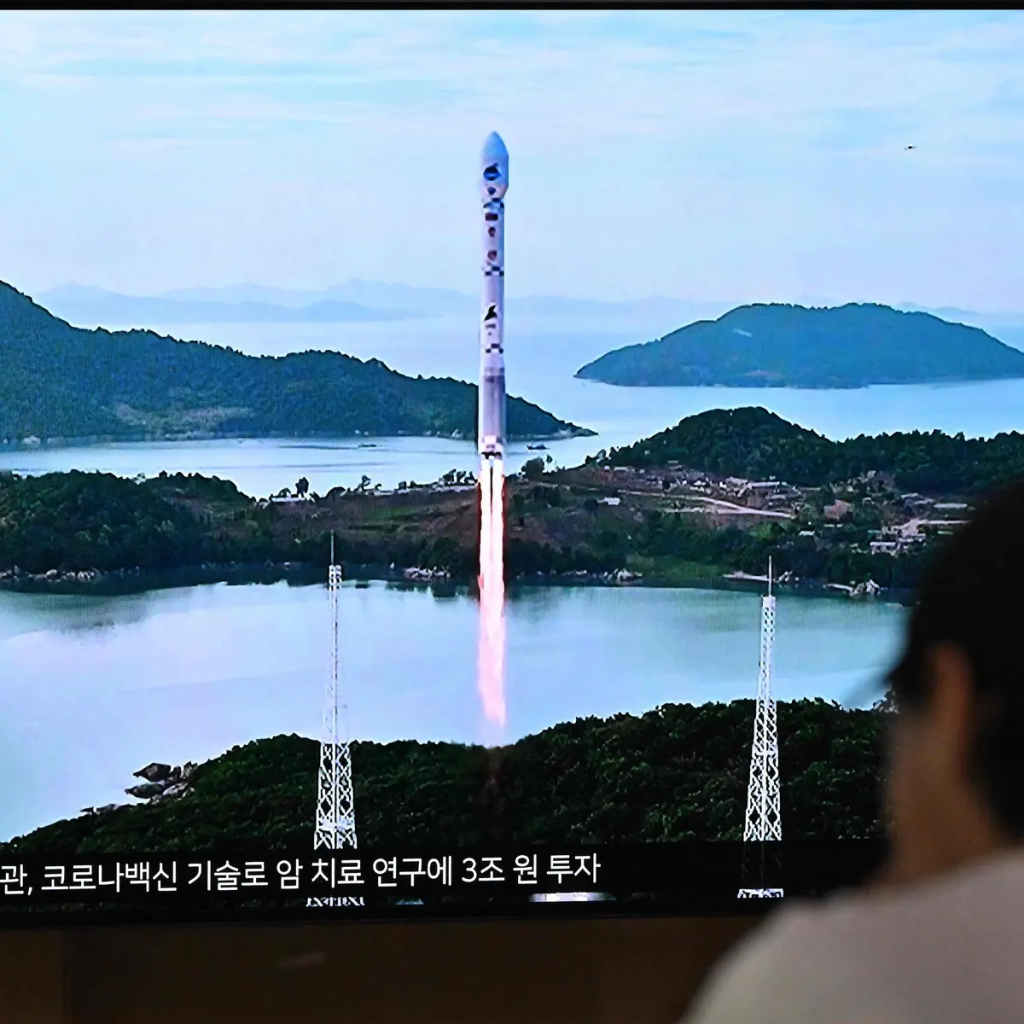North Korea’s latest endeavor to deploy a military reconnaissance satellite into orbit has resulted in yet another setback, marking the second consecutive failure in this ambitious pursuit.
The launch was executed at dawn on Thursday morning, the initial day of a week-long timeframe dedicated to the launch. However, due to an issue arising in the rocket’s third stage responsible for transporting the satellite, the attempt failed. North Korean officials revealed their plans for a subsequent launch effort scheduled for October.
The state-run Korean Central News Agency (KCNA) conveyed, “The flights of the first and second stages of the rocket were normal, but the launch failed due to an error in the emergency blasting system during the third-stage flight.” The South Korean military detected the launch’s initiation from the Sohae Satellite Launching Station at approximately 3:50 am local time, followed by the rocket’s trajectory being monitored as it traversed international airspace over the Yellow Sea.

Around ten minutes following the launch, residents residing in Japan’s southernmost Okinawa prefecture received urgent alerts instructing them to seek shelter indoors. The situation eased when the emergency warning was lifted roughly 20 minutes later. There are indications that fragments from the launch may have descended into the Pacific region near the Philippines, according to reports from Japanese broadcaster NHK.
A primary focus of North Korean leader Kim Jong Un’s strategic agenda involves the deployment of a spy satellite, aiming to enhance the country’s military capabilities and advance cutting-edge weaponry. The initial endeavor in May faced a similar fate, with authorities referring to it as their “most serious failure” and committing to another attempt.
In response to the recent sequence of missile launches, Japanese Chief Cabinet Secretary Hirokazu Matsuno emphasized the regional security threat posed by such actions during a televised press conference. He vowed to deliver a robust protest against North Korea and condemn these activities in the strongest terms possible. Echoing these sentiments, South Korea’s National Security Council criticized the launch, citing its violation of United Nations Security Council resolutions that prohibit Pyongyang from employing ballistic missile technology.

The United States voiced agreement with this standpoint and urged North Korea to desist from any “further threatening activity,” instead urging the nation to engage in earnest diplomatic efforts. A spokesperson from the US State Department underscored that “Space launch vehicles [SLVs] incorporate technologies that are identical to, and interchangeable with, those used in ballistic missiles, including intercontinental ballistic missiles [ICBMs].”
After the launch, foreign ministers from South Korea, Japan, and the United States engaged in a phone call. They collectively considered unilateral sanctions as a response to the event, as South Korea’s foreign ministry indicated. This launch incident coincided with the recent meeting of leaders from South Korea, Japan, and the US in Washington, DC.
Additionally, it coincided with the annual Ulchi Freedom Shield military exercises conducted by US and South Korean forces, an event North Korea views as a practice for an armed conflict scenario.


